6 Things Your Mouth Could Be Saying!
What your mouth is trying to say . . . the link between Oral and Overall Health
You know your teeth are important. But did you know that the condition of your mouth is *linked to your overall health? From vitamin deficiencies to **keeping your heart healthy, taking care of your mouth is one of the first steps towards taking care of yourself.
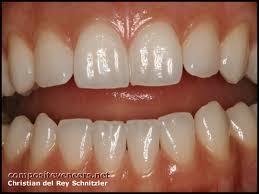
6 Things Your Mouth May Be Telling You
Can dental problems predict other health concerns?
By: Karen Leckey
Reviewed By: Andrew M. Sicklick, D.D.S.
What does your mouth have to say about your overall health? You'd be surprised. Recent headlines have discussed the link between gum disease and heart health, but dental health can predict other conditions as well. Your mouth may be the first place you notice symptoms of a disease.
Here are six oral health warning signs and some of the conditions they could signal:
1. Bleeding gums. These are a symptom of gum inflammation or gingivitis, the first stage of gum disease. Bleeding gums can also signal a vitamin C deficiency or diabetes. For some people, bleeding gums are the first sign of leukemia.
2. Periodontal disease (even with good dental hygiene). Most gum disease is caused by poor oral hygiene, sometimes combined with factors like smoking. If you're good about brushing and flossing and still have gum disease, it may indicate conditions like vitamin D deficiency or osteoporosis. Periodontal disease also may be connected to some cancers, although the connection is unclear. Pregnant women should also pay attention to gum disease because severe periodontal disease can increase the risk for preterm birth.
3. Fungal infections. Thrush is a common fungal infection that affects the mouth, causing bad taste and white patches. Bacteria and fungi occur naturally in the mouth. Thrush occurs when too few bacteria allow overgrowth of fungi. Common causes of fungal infections include too many antibiotics, diabetes, and a weakened immune system, usually by infections, including HIV.
4. Loose teeth. Loose teeth in adulthood may indicate a jaw weakened by bone loss. Untreated gum disease eventually may cause loose teeth, but they also can be a sign of osteoporosis or a calcium deficiency.
5. Cavities. When you still get cavities despite good oral hygiene, some other disease process may be at work. People with diabetes are susceptible to more cavities because they may have more sugar in their saliva if their diabetes is not controlled. More cavities are common in people with bulimia because repeated vomiting can damage tooth enamel and make them susceptible to decay.
6. Dry mouth. Dry mouth can be a side effect of many medications, but is also a symptom of some conditions. Sjogren's syndrome is an autoimmune disease that causes dry mouth and dry eyes. Other conditions that can cause dry mouth include diabetes, hypothyroidism and HIV.
2. Periodontal disease (even with good dental hygiene). Most gum disease is caused by poor oral hygiene, sometimes combined with factors like smoking. If you're good about brushing and flossing and still have gum disease, it may indicate conditions like vitamin D deficiency or osteoporosis. Periodontal disease also may be connected to some cancers, although the connection is unclear. Pregnant women should also pay attention to gum disease because severe periodontal disease can increase the risk for preterm birth.
3. Fungal infections. Thrush is a common fungal infection that affects the mouth, causing bad taste and white patches. Bacteria and fungi occur naturally in the mouth. Thrush occurs when too few bacteria allow overgrowth of fungi. Common causes of fungal infections include too many antibiotics, diabetes, and a weakened immune system, usually by infections, including HIV.
4. Loose teeth. Loose teeth in adulthood may indicate a jaw weakened by bone loss. Untreated gum disease eventually may cause loose teeth, but they also can be a sign of osteoporosis or a calcium deficiency.
5. Cavities. When you still get cavities despite good oral hygiene, some other disease process may be at work. People with diabetes are susceptible to more cavities because they may have more sugar in their saliva if their diabetes is not controlled. More cavities are common in people with bulimia because repeated vomiting can damage tooth enamel and make them susceptible to decay.
6. Dry mouth. Dry mouth can be a side effect of many medications, but is also a symptom of some conditions. Sjogren's syndrome is an autoimmune disease that causes dry mouth and dry eyes. Other conditions that can cause dry mouth include diabetes, hypothyroidism and HIV.
It's no accident that five of these six warning signs mention diabetes. People with diabetes (both type 1 and type 2) are at greater risk for many dental problems, including periodontal disease. In addition, about one-third of people with diabetes have not been diagnosed, according to the National Institutes of Health. Those two facts should make any unexplained oral symptoms a good reason to see your dentist.
Does your dental health place you at risk for other diseases?
Self test!
Are Your Teeth Hurting Your Health?
1. Question: The last time I visited the dentist:
Was within the past 6 months.
Was a year or two ago. I think.
They gave me a lollipop.
2. Question: I brush my teeth:
At least twice a day.
Definitely in the morning; other times when I remember.
When I think of it, but use gum and mints if I don't.
3. Question: I floss my teeth:
Every day.
When I remember to.
Isn't that something the hygienist does?
4. Question: The last time I smoked was:
Never.
Before I quit a few years ago.
Within the past week.
5. Question: How much sugar do you eat?
Not much, just in fruits and juices.
A fair amount. I have a sweet tooth, or several.
It's a major food group.
6. Question: How many teeth are you missing?
Just my wisdom teeth.
Missing one.
Missing two or more.
7. Question: What dental work have you had done?
Just some fillings.
One or two crowns.
Crowns, implants, bridgework.
*********
Keeping your teeth and gums healthy means that you:

* Brush regularly
* Floss regularly
* Get professional cleanings twice a year
* Eat, rest, exercise properly & efficiently
* Treat Gum & Teeth problems asap
Get your dentist’s help to address gingivitis or other symptoms like dry mouth or infections. Oral health problems also may be warning signs of serious health problems like diabetes or heart disease.
So, commit yourself to better dental health and brush to beat disease.
OraDr - Gum disease, gingivitis, cankers etc treatment
Tooth Soap - Dr G F Judd PhD - Remineralise teeth
**
Bad Teeth, Bad Heart?
By: Karen Leckey
Reviewed By: Andrew M. Sicklick, D.D.S.
You may know the lyrics to the healthy heart song: eat right, exercise, lose weight, quit smoking. Ever heard the verse that goes 'brush and floss regularly?'
For years, researchers have been studying the connections between oral health and cardiac health. They've known that bacteria from the mouth can get into the bloodstream during dental procedures and cause serious heart infections in people with heart defects or artificial valves.
More recently, multiple studies have shown connections between periodontal (gum) disease and heart disease. They include links between higher rates of periodontitis, tooth loss and other oral problems to increased risk factors for coronary artery disease, thickened carotid arteries and other types of cardiovascular disease. Despite the numerous connections and multiple studies, cause and effect relationships are harder to identify. Can gum disease give you a heart attack? Tough to say.
Research: What it says and what it means
The studies relating heart disease and gum disease are varied. Here are the conclusions found by three separate studies:
* The rate of heart disease increases with the number of teeth patients were missing.
* Intensive treatment of periodontal disease may reverse atherosclerosis, or hardening of the arteries.
* People exposed to certain bacteria associated with gum disease also have increased risk for cardiovascular disease.
Studies and then analyzed the rates of oral health and heart disease looking for connections. Identifying cause and effect in these cases can be a 'chicken and egg' situation. Does gum disease give you heart disease? Or, does gum disease lead to less heart-healthy diet choices? For instance, loose teeth could lead you to avoid healthy, hard-to-chew food like fruits and vegetables and instead favor soft, high-fat, high-cholesterol foods like cakes and cheeses.
So, which causes clogged arteries: The bad teeth or the behaviors they may cause? There may be no absolute answers. The lesson to take from here is that one body system easily affects the others.
5 ways your teeth can help your heart
So how can you help yourself if the doctors can't even explain the connections? Start with the basics for good oral hygiene, including these five steps:
1. Brush your teeth twice a day, every day, more if your dentist tells you to. Use fluoride toothpaste. Change your toothbrush or brush head every three or four months.
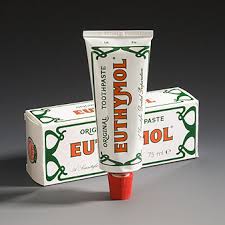
2. Floss your teeth once a day to keep gums healthy and free of periodontal disease. You already may have gingivitis, a milder form of gum disease that includes bleeding or reddened gums. If gingivitis is left untreated, it can develop into the more severe periodontitis. If you brush and floss regularly and still have gum disease, ask your dentist for other options.
3. Make that appointment. Brushing and flossing should be supported with regular professional dental cleanings twice a year. Your dentist can clean your teeth better than you can and can tell when other conditions such as dry mouth affect your teeth. If needed, your dentist can bring in the big guns, like prescription mouthwash or scaling and root planing, a deep cleaning of the gums.
4. Quit smoking. Double or triple points for this one. Quitting smoking can help reduce your risk for heart disease, periodontal disease and oral cancers. If you smoke and have periodontal disease, it takes longer to heal after getting the disease treated.
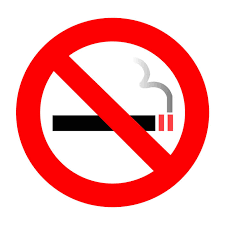
5. Keep bacteria under control. Some of the recent studies have connected higher levels of bacteria or signs of bacterial exposure with heart disease. When you get a prescription for antibiotics, finish it. Don't stop the drugs when you feel better. People with some heart conditions or artificial valves may need antibiotics before dental cleanings and some other dental procedures to prevent infection. Guidelines for this type of antibiotic prophylaxis changed in 2007, so check with your dentist or physician if you are not sure if you still need antibiotics.
Heart disease has numerous risk factors, some of which (gender and family history) are not in your control. Your dental health is. Following these steps will definitely help your teeth and gums and may help your heart. But remember, being rigorous with dental hygiene doesn't give you a free pass to ignore your heart health. For that, eat well, exercise regularly, get your weight under control and get your cholesterol and blood pressure checked regularly.
* * * * * * * * * * * * * * *
GeeZone - Massage, Health & Beauty Therapies
www.geezone.biz
For further information on services and products
call/text: +44(0)7931 100 093
email: geeoz5@aol.com
* * * * * * * * * * * * * * *
GeeZone website:
Click here
GeeZone fanclub - join now for interesting tips, advice & freebies
Click here
Join my New Holistic Massage, Health & Beauty FaceBook Page:
Click here
Join me on BLOGGERS - advice, blogs, tips & freebies
Click here
Join me on Twitter -
Click here
FREE CD - Law Of Attraction
Click here
Subliminal Audio - Greg Frost - Brain Entrainment
Click here
Treat Yourself To A Special Giveaway about The Power of Belief - Alan Tutt
Click here
GeeZone - Massage, Health & Beauty Therapies
www.geezone.biz
For further information on services and products
call/text: +44(0)7931 100 093
email: geeoz5@aol.com
* * * * * * * * * * * * * * *
GeeZone website:
Click here
GeeZone fanclub - join now for interesting tips, advice & freebies
Click here
Join my New Holistic Massage, Health & Beauty FaceBook Page:
Click here
Join me on BLOGGERS - advice, blogs, tips & freebies
Click here
Join me on Twitter -
Click here
FREE CD - Law Of Attraction
Click here
Subliminal Audio - Greg Frost - Brain Entrainment
Click here
Treat Yourself To A Special Giveaway about The Power of Belief - Alan Tutt
Click here
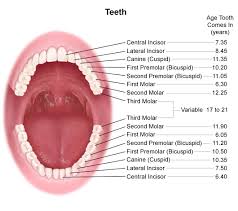
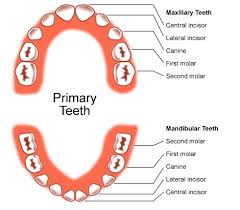

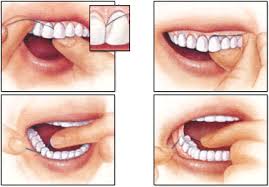
No comments:
Post a Comment
Please feel free to leave your comments/queries here.
Be Healthy, Be Happy . . . Stay blessed!
GeeZoneBiz
Note: only a member of this blog may post a comment.